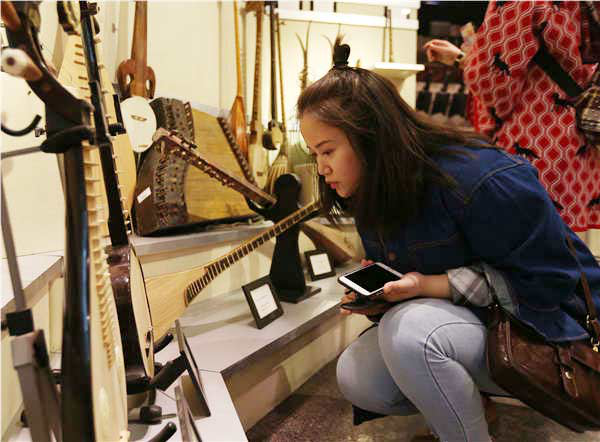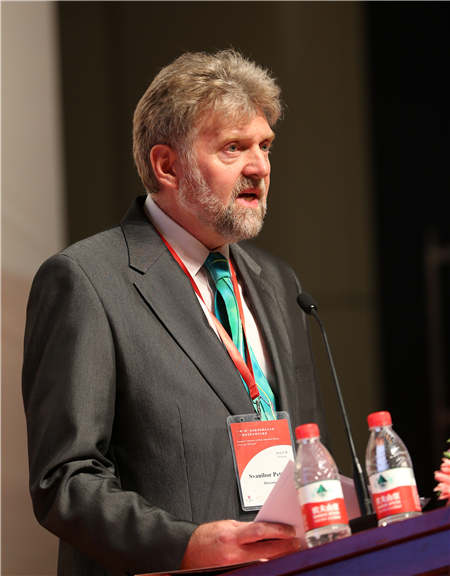
Release time:2019.12.05

An exhibition of musical instruments is held at the Central Conservatory of Music in Beijing. Photos by Feng Yongbin/China Daily
The inaugural conference of the Music Education Alliance Across the Silk Road, initiated and organized by the Central Conservatory of Music, was held in Beijing over May 5-7.
The Silk Road is a byword for economic trade and cultural exchanges between Asia and Europe.
Professors and presidents of 15 music conservatories from countries along the old trade routes, including the Kyrgyz National Conservatory, the Slovenian Conservatory of Music and the Vietnam National Academy of Music, and those from 11 Chinese music schools, such as the Shenyang Conservatory of Music and the Shanghai Conservatory of Music, participated in forums and workshops held as part of the conference.
An exhibition of musical instruments from countries along the Silk Road and concerts, including ones on Xinjiang Muqam music and traditional music from Uzbekistan, Tajikistan, Azerbaijan, Turkey and Iran, was held during the event.
An agreement on research and cultural exchanges, such as in-depth exchange activities and plans for teacher and student exchanges and scholarships, was signed during the conference.
According to Yu Feng, the president of the Central Conservatory of Music, the conference will be held every three years in alliance countries along the Silk Road. And reports from presidents and professors of music conservatories will be published in Chinese, English and Russian.

Svanibor Pettan, secretary-general of the International Council for Traditional Music
"The ancient Silk Road trade route, for centuries, had been a catalyst for openness and collaboration. Besides business, cultural communication was an important part of the Silk Road. We hope that the new alliance will contribute to music research and boost collaboration in music education," said Yu at the opening ceremony in Beijing on May 5.
Yu also said that cooperation among universities, which have geographical advantages and rich educational resources, will promote innovation in music research.
Speaking about the event, Svanibor Pettan, a professor at the University of Ljubljana Slovenia and secretary-general of the International Council for Traditional Music, a nongovernmental organization linked with UNESCO, says: "We are interested in learning about various musical traditions. That's why we are here, for the music alliance along the Silk Road."
The ICTM World Network comprises 127 countries and regions, and in July 2018, the Central Conservatory of Music and ICTM will join forces to host a forum of international societies which focuses on researching music and dance.
Speaking about the plan, Pettan adds: "Western music is seen as one of the world's great music systems rather than a standard for evaluation of other music systems. Every music system is worthy of study, and learning helps us understand a broader cultural context."
The Music Education Alliance Across the Silk Road is a way of boosting the Belt and Road Initiative, a trade and infrastructure development plan announced by President Xi Jinping in September 2013 during a visit to Kazakhstan.